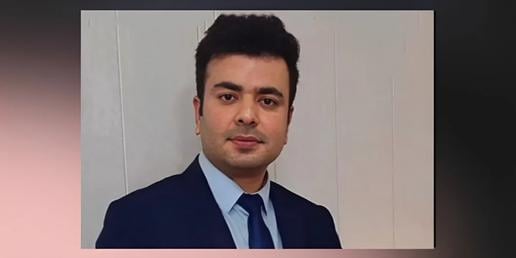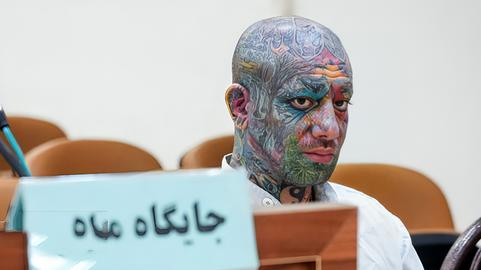The Iranian government harasses, imprisons and tortures journalists on a daily basis. Why? For exercising their fundamental right to freedom of information and expression.
Journalism is not a Crime was set up to support these jailed journalists. The site, which is officially launched on June 9, documents cases where journalists are unfairly arrested, and aids reporters and their loved ones by providing legal and psychological help to those affected.
Journalist Saeed Pourheydar was arrested in 2010 and faced a range of charges, including propaganda against the regime and disrupting public order.
Name: Saeed Pourheydar
Career: Journalist and blogger
Charges: Propaganda against the regime; conspiracy to overthrow the regime; disrupting public order; insulting the president; insulting sacred Islamic commandments.
Saeed Pourheydar was first arrested on 5 February 2010 at his home. He spent one month in solitary confinement at Evin Prison’s Cell Block 240, after which he was released. He was arrested again on 10 October 2010 and spent another 52 days in solitary confinement at Cell Block 240, waiting for the decision of the appellate court.
During interrogation, two charges—“insulting the president” and “insulting the sacred and Islamic commandments”—were dropped. A Revolutionary Court cleared him of two further charges, “disrupting public order” and “propaganda against the regime”. He was found guilty of the remaining charge,“conspiracy to overthrow the regime,” for which he was handed down a five-year prison sentence. The sentence was then suspended for a period of five years.
“They had no evidence with which they could arrest or convict me, except my personal blog and the fact that I talked to foreign media,” Pourheydar told IranWire.
After he was arrested the second time, he lost more than nine kilos while in solitary confinement. While in prison, he witnessed and heard firsthand accounts of widespread abuse on behalf of prison employees: guards beat prisoners, including targeting the most sensitive body parts; urinated on prisoners’ heads and faces; hung inmates upside down; administered electric shocks and whippings; and, in one case, seriously sexually assaulted an inmate.
But, Pourheydar said, “no torture is like solitary confinement. Even if the prisoner is not subjected to physical torture or assault, solitary confinement is by itself a psychological torture.” During interrogation he was beaten, deprived of sleep, thrown into a barrel of cold water, forced to stand outside in cold weather, threatened with lashings and forced to confess to charges of immoral behavior.
Authorities also threatened to arrest Pourheydar’s family members, informing him on one occasion that his wife and daughter had been arrested, which was not true. While questioning him, interrogators played a recording of his daughter's voice in an effort to convince him that she and his wife have been detained. “This really hurt me,” he said.
To learn more about issues affecting journalists in Iran please visit: journalismisnotacrime.com


























comments